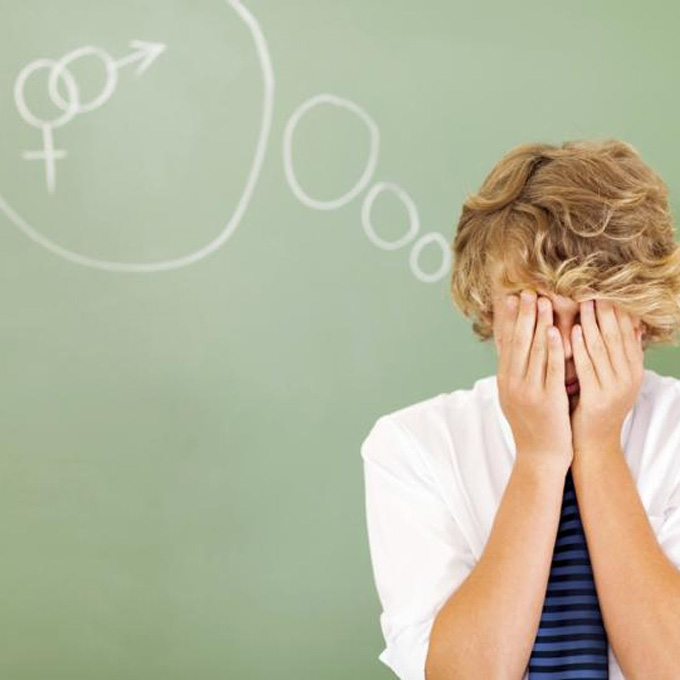
In our environment we have gone from seeing sexuality as something forbidden to contemplating it as something accessible and interesting. Not only for the pleasure it can provide but also for the status it grants within the peer group. Greater sexual behavior is related to more physical attractiveness, recognition or leadership capacity within the group. This is revealed in the cinema, music or social networks. But this does not mean that we know more.
We will start from the basis that many popular statements about sexuality are not true. For example, that “we are all born knowing”, that “when the time comes, everyone knows what to do” or “that love can do everything and teaches it”. Persisting in these myths only perpetuates relationship patterns that generate great dissatisfaction in men and women.
From the family environment to web pages
Both children and young people have doubts (and many adults too) and feel insecure about this essential aspect of their personal and social development. Also regarding the emotions they feel and the sensations they experience. That is why, just as we do in any other field, they try to find answers .
These doubts will be expressed openly if the family and educational environment offers them security. If this does not happen, it is possible that they seek the support and understanding of their peers, moving away from the adults of reference. Another possibility is that they find it in what has become their main information tool: the internet.
In this sense, we must not forget that we live in a society saturated with information, where access to it is not only easy but immediate. Teenagers currently have obvious access to many pages about sex, but what kind of sex? What interests do some of the pages they visit have? Are they prepared to understand the content they access?
And with these questions we do not intend to refer only to porn (perhaps the main concern of families and educators) but also to any content that they may find related to their sexual health. For example, recommendations on sexual practices (many of them combined with the consumption of alcohol or other substances) or on the role that each sex plays in emotional and sexual relationships (in many cases perpetuating stereotypes of inequality).

What is the role of the family?
The role played by the family in training on sexuality and affectivity is essential. Not only through specific education but through the models they offer their sons and daughters and the affective relationships they establish with them.
The couple relationships that we maintain throughout our lives will be determined by the attachment relationships that we have previously developed with our parents or primary caregivers. That is, we learn to feel comfortable, safe, to show ourselves as we are, to seek intimacy and to know how to give and receive affection throughout our childhood. Above all, through the security and trust that we have received in our affective relationships with our parents .
However, parents talking openly with their children about sex is still not as frequent as it should be. Let us remember that when we talk about sex we are not only referring to the dangers and the need to protect oneself (to know how to say no in the face of pressure or coercion, from sexually transmitted diseases or unwanted pregnancies) but also to take care of oneself and love oneself, knowing how to give and receive affection, pleasure and communication.
In this sense, many parents admit that they are ashamed to talk about this topic. Or simply that they don’t know what to say or feel insecure about their own knowledge or experiences. All this is a natural response to the lack of specific training received.
Faced with such a situation, they can always seek help from their children’s teachers, from their pediatricians or family doctors, from scientific readings on the subject: there are great authors in our country who have worked hard to bring sex education closer to all stages of life, highlighting Professor Félix López , professor at the University of Salamanca.
But above all, they must remember that they can be a reference point for emotional education for their children, even when they acknowledge that they are unaware of some issues in depth, but offer to accompany them on their path of discovery.
How should the school intervene?
We regret having to insist that the school is not fulfilling its educational role in this area either. We still find that the only information on the subject that is offered throughout the education refers to reproduction and contraceptive methods.
There has been no educational law in our country that has included affective and sexual education in the curriculum. However, in Europe we have been working for years to promote quality sex education, based on scientific knowledge and that promotes health among citizens. For this, some consensus documents have been developed with the idea of homogenizing general bases that can be shared by all the member countries.
An example of this is the publication of the Regional Office for Europe of the World Health Organization and the German organization BZgA, in which they established some general guidelines to help health specialists design sexual education programs.
Also in our country, an attempt has been made to establish a general framework that helps specialists, mainly health and education professionals, to demystify some beliefs about sex education and to implement proposals based solely on scientific knowledge. This is how the document Education for sexuality with scientific bases was born. Consensus document , which indicates what sex education is and what we should not consider as such. Their conclusions include:
- Address a wide number of topics related to the physical, affective, social and cultural aspects of sexuality.
- Promote tolerance and avoid moral judgments.
- Don’t limit yourself to disease prevention and don’t rely on fear.
- Encourage the development of a positive attitude towards sexual well-being.
- Use appropriate and understandable language.
- It must be based on the change of people at each stage of the life cycle and adapted to their needs.
- Always be framed in the defense of universal human rights.
- Cooperate with the community and with families, among others.
We continue to need continuous training for education professionals in the field of sexuality, that affective education be recognized as an essential area in the development of our boys and girls and that sexuality in all its breadth be included in the study programs (pleasure, affection, health, communication, identity).
And we must continue to offer support to families so that they can find realistic and reliable training and information to help them raise their children in a sexually healthy and ideology-free way.
If the parents or the school do not fulfill this function, the search for information on the internet, social networks or peers is left free. Information that will not always be reliable and against which they continue to be just as defenseless without the necessary training to select it. If they are not offered specific training, they will continue to consider pornography as a basic learning manual, with all the values and ideals that, in addition to sexual behavior, are transmitted in it.
Author Bio:Carmen Santin Vilarino is University Professor in the Department of Clinical and Experimental Psychology. Knowledge area Personality, Psychological Evaluation and Treatment at the University of Huelva
